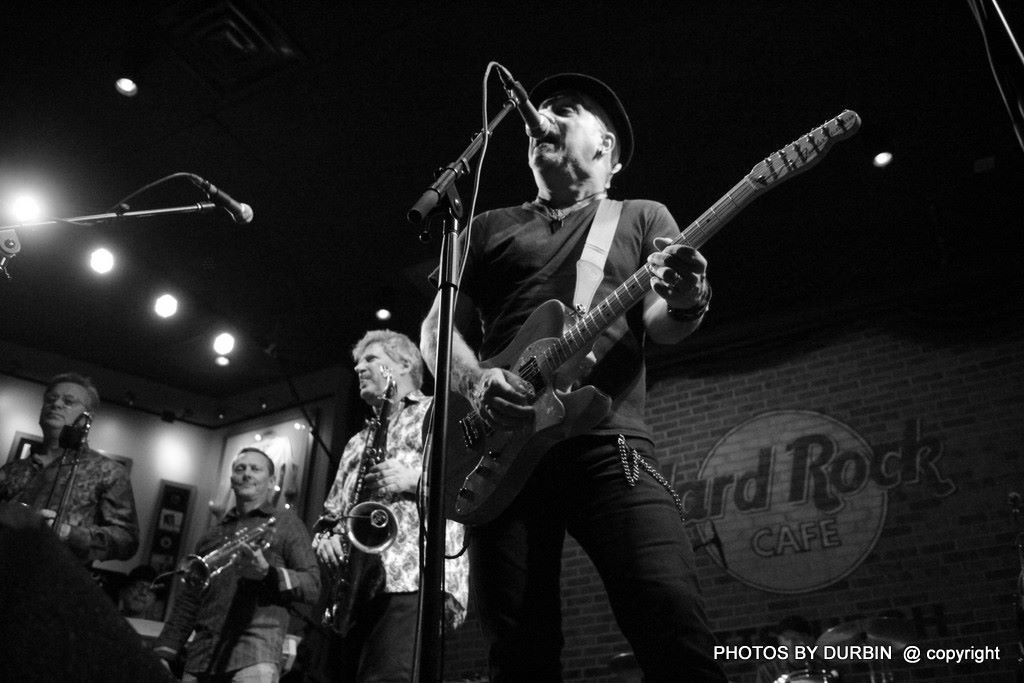
All images courtesy of Bill Toms
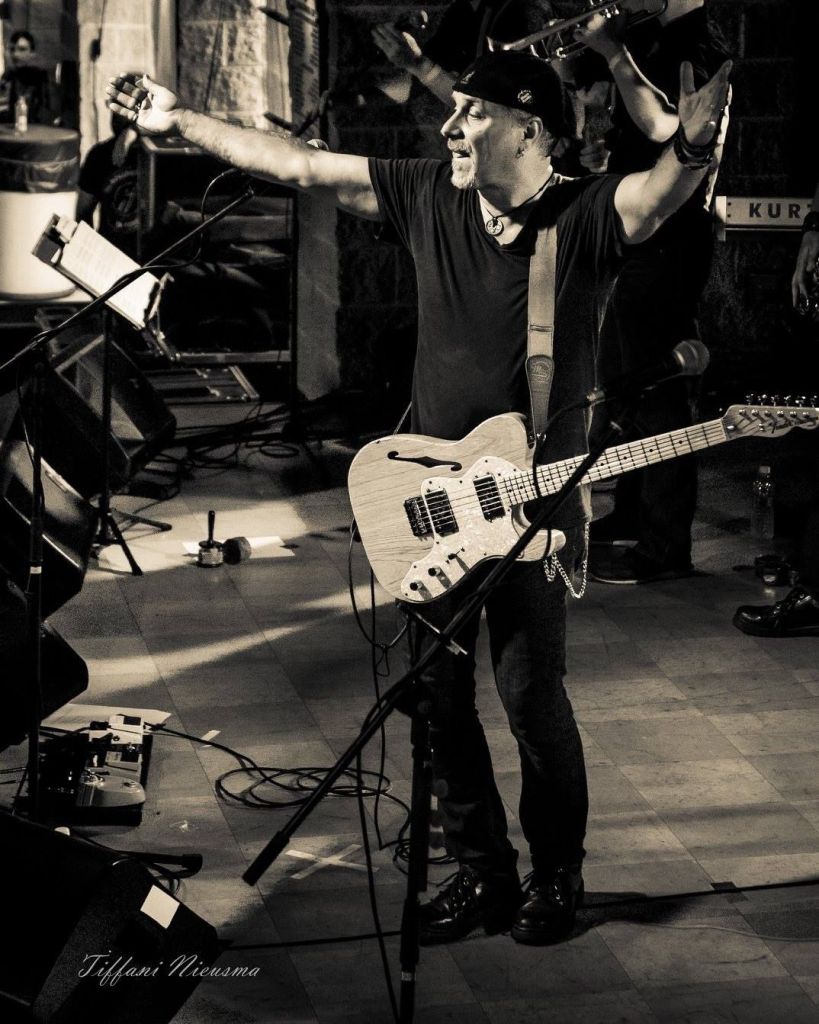
While it’s hard to put a finger on any one sound that defines “American music,” the compositions of Bill Toms are as close a template as any. The Pittsburgh native, along with his band Hard Rain, delivers a sound that takes the greatest of America’s most beloved genres and melds them into a poetic representation of the best the country has to offer.
Toms launched his musical career in 1987 as the lead guitarist of Pittsburgh’s legendary band Joe Grushecky and The Houserockers. During that period, he opened for and played with such legendary names as The Band, Bob Dylan, Bruce Springsteen, Little Feat, and Stevie Ray Vaughn. While playing guitar, co-writing, and adding backup vocals for the Houserockers, Toms and the band recorded six studio albums and one live concert album. In 1995, The Houserockers released American Babylon, which was recorded and produced by Springsteen himself.
As a solo artist, Toms has opened for the likes of Buddy Guy, Levon Helm, Marshall Crenshaw, The Kennedys, Steve Forbert, and Ellis Paul. For more information and tour dates, please visit www.billtoms.com.
Bio courtesy of www.billtoms.com
Andrew:
Bill, thank you for taking the time to speak with us. This last year has been rough.
How are you holding up?
Bill:
Thank you for having me. Yes, to have a piece of your craft taken away is devastating. Creating this record was quite therapeutic. It gave me purpose and a reason to create. As an artist, nothing is more important.
Andrew:
Tell us about your backstory. What was your musical gateway?
Bill:
I had two older sisters. So as a kid in the 60s, Motown, Stax, Soul, and British Pop were all around me. They both played piano, as did my mom. My Pop played the trumpet. That’s where I started musically on the horn.
Andrew:
As an artist, who are some of your earliest and most important influences? How did you develop your signature sound?
Bill:
My influences were cemented in 70s Rock ‘N’ Roll. I started playing guitar in 1976, so Tom Petty (Damn the Torpedoes), Springsteen (Darkness on the Edge of Town), and The Clash (London Calling) were cornerstones. From there, I went back to ‘their’ influences and found myself walking a road replete with Bob Dylan, Muddy Waters, Otis Redding, T-Bone Walker, etc. It takes time to develop your voice (presentation). It wasn’t The Voice or America’s Got Talent. We worked the bars, clubs, frat houses, and the like to understand who we are and how to work a crowd.
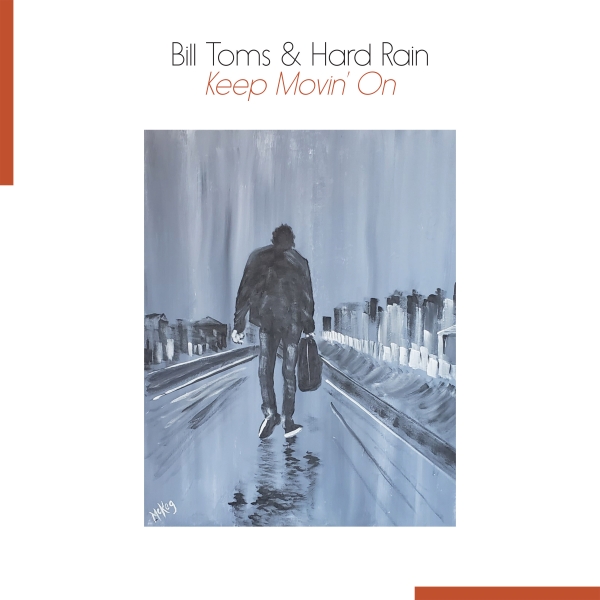
Andrew:
Let’s talk about Hard Rain’s new album Keep Movin’ On. How did it come together? Tell us about the recording process.
Bill:
I knew we were not going to be able to gather in a studio. There are eight of us, plus our producer (Rick Witkowski), so we were not going to record like we normally would. So I would create the songs at home with loops, send them to Rick, and he would start fleshing them out. Others in the band, including Will Kimbrough from Nashville and my European bass player (Simone Masina) in Italy, recorded and would mail in their parts. I would get together with Rick at the studio and record vocals. It was a fresh approach for me. I was able to spend more time on arrangements than I normally would while trying and coming up with sounds and atmospheres I never had before. Very happy with the results.
Andrew:
What was the inspiration for songwriting? Is the lyrical content personal? Or are these only
stories, so to speak? What would you compare your music most to?
Bill:
Honesty is important to me. So the ideas and characters that I come up with are based on truth—artistic license to move and mix with my own life and what I read about. I am a heavy reader, so ideas sometimes are a blend of my experience and others.
Andrew:
How about the production side of things? Do you self-produce, or were outside sources
brought in to help hone the sound? What can fans expect from your new record, Keep Movin’ On?
Bob:
I tend to leave the production to a third party. Someone I trust with the vision I have. I like to have that ‘outside’ view. My old friend of thirty years, Rick Witkowski (Crack The Sky, B.E. Taylor), produced Keep Movin’ On. Will Kimbrough produced my last two, and he plays on a couple of tracks on this record (“I Keep Moving On,” “American Dreamer”). I like to work with the tools that I am familiar with as far as American Rhythm and Blues, but on this record, just spreading out a bit with modern sounds was refreshing.
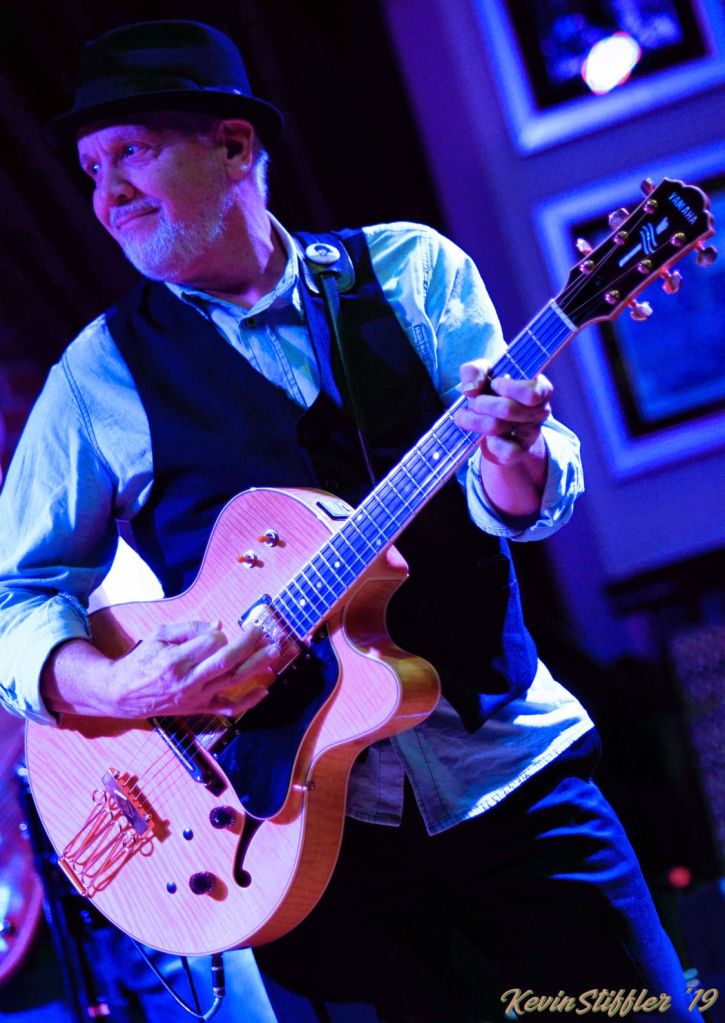
Andrew:
How much of an influence has the COVID-19 pandemic had on your songwriting and on
the overall process and creation of your new record?
Bill:
Everything. As we talked about, there was no way we could make the record as we have recorded in the past, with all of us in a room. So we had to adjust. And not just adjust, but embrace the challenge. The songs are written with the voices of hatred of the last few years ringing in my ears. Optimism and hope are never more than the understanding that putting others before yourself is not a weakness but the strength that preserves our culture.
Andrew:
Let’s shift gears now, live music is usually a huge part of a working artist’s proverbial
machine, but as we know, COVID has disallowed it. What do you miss most about live
music?
Bill:
40 years of always having a “gig” in the books, suddenly that calendar is empty. I miss my band; I miss the audience; I miss popping in on a gig of some friends and jamming. I hate the idea that we need to be reassured by the listening audience, but it is true. The artist and the fans are the same entity.
Andrew:
One disturbing fact I’ve learned over time is that streaming services don’t pay artists well, if at all. What are your thoughts on that issue? How do we, as fans, do our part to help?
Bill:
I tend to look at it this way. Even without the “business” of music, someone is creating, and performing. As a fan, I want to support the efforts by listening. That’s what the artist needs. Financially, the artist was always last in the pay line. That hasn’t changed.
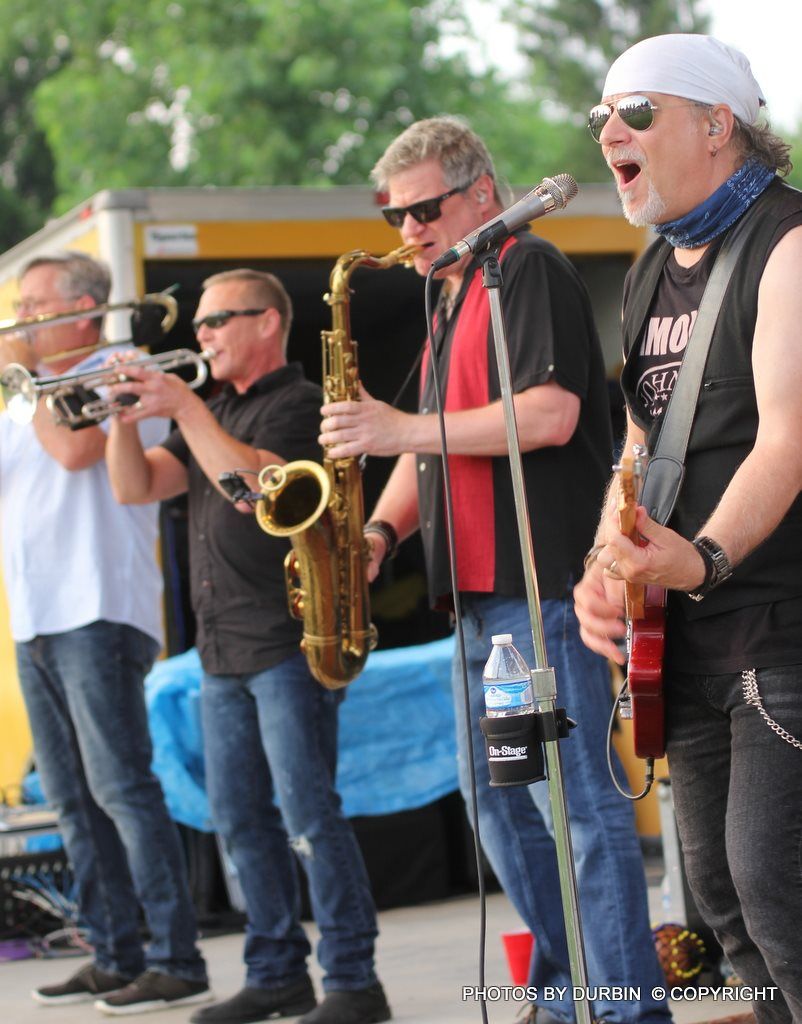
Andrew:
In a world dominated by big business and social media, can artists really, truly get ahead?
Bill:
There are two ways to look at this. The idea that someone can record a song in their living room in the morning and release it to social media in the afternoon is very empowering to the artist. On the flip side, there are no filters. In other words, less than stellar pieces of work are overwhelming the industry. I still think we need to hold the artist accountable for their art if it’s being released to the masses. I want to be held accountable. There used to be music journalists who did nothing but hold the artist accountable for the integrity and quality of their work. Lester Bangs, Robert Christgau, Hunter S. Thompson, Greil Marcus, etc., are a few. The fact that Big Corp. runs the music business and has for some time makes me think the only way to “get ahead” is to “go around.” We need to create a business run by music people. That may be on a local or regional platform.
Andrew:
How do we keep the playing field level so that everyone has a chance to succeed?
Bill:
Maybe to succeed (a term up for grabs), we have to strive for greatness. Mediocrity is a curse. Art is subjective unless we talk about honesty, believability, and passion. Where is the modern-day Patti Smith? Here’s where that self-preservation comes in. Creating our own business, concerts, etc.
Andrew:
Are you into records? Tapes? CDs? Digital? Where do you like to shop for music? What
are a few albums that mean the most to you, and why?
Bill:
Records and digital (for accessibility purposes).
Bob Dylan (Blood On The Tracks) – Honesty, lyrically passionate.
The Replacements (Tim) – Pop music from the trenches.
The Rolling Stones (Get Your Ya Ya’s Out) – Guitars.
Aretha Franklin (Lady Soul) – Soul deep!
Chuck Berry (The Great 28) – This is where I learned.
Andrew:
Who are some of your favorite artists? Ones that mean the most to you.
Bill:
My favorite artists are always changing. Which it should. As I write this, Paul Simon is singing, so he’s my favorite. Ok, now it’s “Express Yourself” by Charles Wright & The Watts 103rd St Rhythm Band…
Andrew:
Last question. What advice would you have for other artists? How do they stay afloat in a
a world that seems to be so abhorrent to creatives?
Bill:
My advice is to be the person you were meant to be. It may not make you a million dollars (or even a hundred), but it’s a beautiful place to be.

Interested in learning more about Bill Toms and Hard Rain? Check out the link below:
Dig this interview? Check out the full archives of Vinyl Writer Interviews, by Andrew Daly, here: www.vinylwritermusic.com/interview
